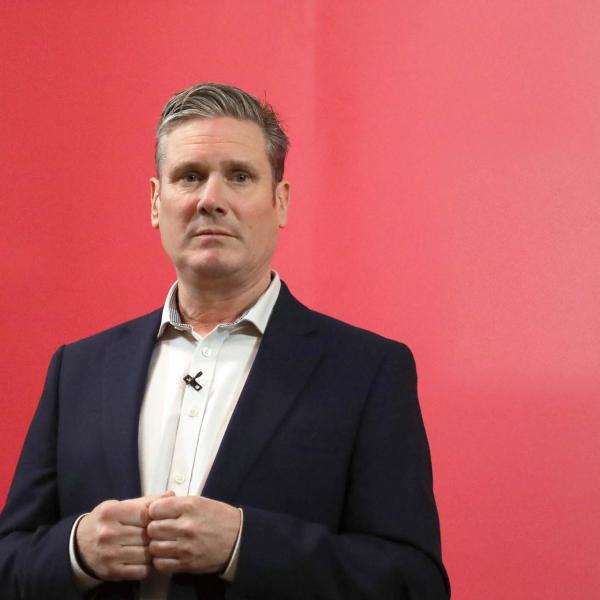Inflation changes everything. We the public are about to discover that — or rediscover it for those of us alive in the 1970s. It changed everything for Rishi Sunak too. Its reappearance drove just about everything in last week’s spring statement and is what allowed him to cut taxation rates while increasing the tax burden and to cut planned spending on public services without announcing anything.
In the face of this unexpected surge in prices I can see the logic behind most of his policies. Increase the point at which national insurance contributions start to be paid? Good for him. It helps low earners while aligning the NI system with income tax. Take the opportunity to announce a cut in the basic rate of income tax? I don’t like the policy, especially when set alongside the increase in national insurance contributions rates, but I can see the political attraction. After all, inflation makes it a free giveaway.
The freezing of the income tax personal allowance and higher rate threshold rake in so much money when inflation is high that income tax revenues won’t suffer at all when the basic rate is cut.
There is one decision I can’t get my head around, though, and that is to do nothing more for those dependent on welfare benefits. The current system of uprating benefits each year in line with inflation the previous September works fine when inflation is low and stable. Not this year. It is particularly problematic when, as now, inflation is being driven by surges in energy and food prices that hit the poor hardest.
Perhaps Sunak felt that, with most people in work taking a hit, it was only fair for benefit recipients, including pensioners, to share some of the pain. If that’s what he was thinking he should tell us. I just can’t work out what was going through his mind.
To be fair he can point to the council tax and energy bill rebates he announced in February. As flat-rate giveaways they help the poorest most in proportionate terms. Low-paid workers are being quite well protected as universal credit becomes more generous for them and the minimum wage rises. And overall his policies are progressive. Like his Conservative predecessors he is hammering high earners, something of an untold story of the past 12 years. But the plain fact remains: those not working and struggling to get by on state benefits are going to be worse off next year than this, and Sunak could easily have mitigated that.
I want to talk about one particular group though: pensioners. Or more particularly what the recent inflationary surge tells us about pension policy.
Back in the 1970s it was pensioners who suffered most from rampant inflation. Many of those with savings saw the value of their savings decline dramatically. There was little inflation protection even for the final salary occupational pensions that many benefited from. A feeble flat rate state pension was barely enough to live on. For the next 20 years much pension policy was designed to help mitigate those sorts of risks. The state earnings related pension scheme, Serps, was introduced in 1978, giving an earnings-related, inflation protected, pension to anyone without an occupational scheme. Various pieces of legislation provided for inflation protection within occupational schemes. Since the 1970s pensioners as a whole have moved from being the poorest group in Britain to being among the richest.
Today many pensioners will have some protection from inflation, though like their working-age peers their state benefits will rise only by 3.1 per cent. There are still large numbers who depend on state benefits for most of their income. They are going to have a tough year. Most of those with occupational schemes will have some protection against rising prices, but often limited to a level below current inflation rates. It’s what’s happening to those with new-style defined contribution pensions that worries me most, though, because it is a window on to the troubles we are storing up for the future.
Nearly all the infrastructure designed to protect pensioners against inflation has been dismantled. Serps has been abolished. Outside of the public sector there are essentially no defined benefit occupational pensions. Defined contribution pensions are the only game in town. But, as I have written here before, they aren’t really pensions at all. There is no compulsion to turn the accumulated pot into an annuity. Those who do buy an annuity almost never buy one with any inflation protection: it just looks too expensive.
In the future then the huge majority of pensioners will be dependent on their own pots of savings. Some will have annuities which don’t rise with prices. Only retired public sector workers will have any protection for inflation beyond their state benefits. It’ll be a return to the 1970s where inflation can quickly undermine a lifetime’s careful husbanding of resources. It’s hard enough to navigate this new world of personal responsibility, individual savings pots and drawdown options in a world of low and stable inflation. In a world of high inflation, it will become nightmarishly difficult.
What’s worse, the amount that can be saved in a pension is being squeezed harder year by year as both the lifetime and annual allowances on what can be contributed are frozen in nominal terms. Just as the chancellor is banking the extra tax from keeping the income tax personal allowance frozen, he is accelerating the decline in private pension provision.
Because most current pensioners are doing pretty well, and because the policy of auto-enrolment into private pensions has worked so effectively, I detect a dangerous complacency around pension policy. If we are to take any benefit from this year’s tribulations, then shaking off that complacency would be a good place to start.
This article was first published in The Times and is reproduced here with kind permission.










